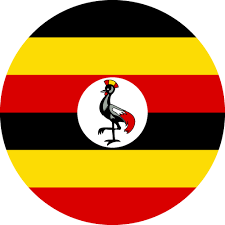Employer of record in Mauritius
Employer of record in Mauritius
Employer of record in Mauritius
Employer of record in Mauritius

Mauritius is an island nation in the Indian Ocean, known for its beaches, multicultural society, and strong economy. It has a diverse heritage, influenced by French, British, African, Indian, and Chinese cultures. The country is famous for its sugar industry, tourism, and financial services, with a stable political environment and high standard of living. The capital is Port Louis, and the official language is English, though French and Mauritian Creole are commonly spoken.
Employee Benefits
PAID TIME OFF
Annual Leave: Employees, except those working part-time, who remain continuously employed by the same organization for 12 months are granted 22 days of paid annual leave. For those who maintain five years of uninterrupted service, the entitlement increases to 30 paid days for each subsequent five-year period.
Sick Leave: Full-time workers qualify for 15 paid sick days after completing a full year of continuous employment. Any unused sick leave from the prior year can be rolled over, up to a limit of 90 working days.
Maternity Leave: Female employees who have served for at least 12 consecutive months are eligible for 14 weeks of paid maternity leave. Up to seven weeks can be taken before childbirth. A medical certificate is required to confirm pregnancy. In addition, the employer must provide a maternity allowance of MUR 3,000 within a week of the birth.
Paternity Leave: Male employees become eligible for five days of paid paternity leave after completing a year of continuous service.
Adoption Leave: Female employees who adopt a child younger than 12 months and have been employed with the same company for a continuous 12-month period are entitled to 14 weeks of paid leave. Documentation including a court adoption order and the child’s birth certificate must be provided.
Public Holidays: Mauritius observes 15 public holidays annually, all of which are paid.
Additional Paid Leave
- Jury Duty: Employees summoned by the court are granted paid leave regardless of job tenure or salary.
- Court Appearances: Employees receive paid leave if appearing on behalf of the employer; otherwise, leave is unpaid.
- Special Leave (per Workers’ Rights Act 2019):
- 6 paid days for an employee’s first marriage.
- 3 paid days for the marriage of a child.
- 3 paid days for bereavement as outlined in the Act.
- Requires at least one year of continuous service.
- National Representation: Employees selected to represent Mauritius in cultural or sporting events abroad are granted paid leave for the duration of their participation.
STATUTORY EMPLOYEE BENEFITS
Unemployment Support: The Workfare Programme (WP), launched in February 2009, provides support to laid-off workers through job placement services, training, skill development, and assistance in starting small businesses. The programme offers Transition Unemployment Benefits (TUB) for up to 12 months.
Funding comes from the Workfare Programme Fund (WPF), managed by the National Savings Fund (NSF), and financed through employer, employee, and government contributions. Employers must also remit a recycling fee into the employee’s NSF account within 30 days following contract termination.
NSF Contributions:
- Employer: 2.5% of the employee’s salary
- Employee: 1% of basic monthly wages
- No NSF contributions are required for individuals aged 65 and above.
NSF Wage Caps (Effective July 1, 2023):
- Daily Minimum: MUR 91 (domestic) / MUR 144 (others)
- Daily Maximum: MUR 935
- Monthly Minimum: MUR 2,375 (domestic) / MUR 3,740 (others)
- Monthly Maximum: MUR 24,315
TUB Payment Schedule:
- First 3 months: 90% of basic wages
- Months 4–6: 60%
- Months 7–12: 30%
Training Levy: Raised to 1.5%, where:
- 1% goes to the Workfare Programme Fund
- Applies to all employees except domestic workers and those aged 70+
Minimum Unemployment Benefit: MUR 270/month (adjusted annually for inflation)
Workers’ Compensation & Social Protection
Workers’ Compensation: Compensation for job-related injuries is funded through CSG (Contribution Sociale Généralisée) contributions.
CSG Benefits
- Covers old age, disability, and workplace injuries or diseases.
- Applies to all workers, including non-citizens and those over 65.
- Employers withhold and remit both employer and employee contributions to the Mauritius Revenue Authority (MRA).
CSG Rates for Private Sector:
- ≤ MUR 50,000: Employer 3%, Employee 1.5%
- > MUR 50,000: Employer 6%, Employee 3%
Public Sector:
- ≤ MUR 50,000: Employer 4.5%, Employee N/A
- > MUR 50,000: Employer 9%, Employee N/A
End-of-Year Bonus Contributions: From September 2021, CSG contributions apply to year-end bonuses, calculated separately from monthly pay, based only on base salary (excluding allowances and commissions). If the bonus is paid over several months, the rate applies to the cumulative total each month.
Retirement Benefits
Portable Retirement Gratuity Fund (PRGF)
- Introduced by the Workers’ Rights Act 2019
- Provides gratuity to:
- Retired workers
- Legal heirs of deceased employees
- Contributing self-employed individuals
Administration: Ministry of Social Security
Employer Obligation: Monthly PRGF returns and payments to MRA
Exempted Workers Include:
- Under 16 years old
- Government or local government employees
- Those earning above MUR 200,000 monthly
- Contributors to a certified private pension scheme
- Covered under the Sugar Industry Pension Fund Act
- Apprentices under Mauritius Institute of Training and Development
- Participants in certain government placement schemes
- Migrant or non-Mauritian workers
Coverage Starts: From the first month of employment (regardless of status)
Rate: 4.5% of monthly earnings, including bonuses and overtime
Alternative Rate (upon ministerial approval):
- Employer: 8.5%
- Employee: 5%
- Applies to workers with special pension entitlements
Wage Thresholds (PRGF Contributions):
- Minimum (home employees): MUR 2,680
- Minimum (others): MUR 1,695
- Maximum (both): MUR 17,470
- Excludes bonuses, allowances, and overtime
Health Coverage
Public Healthcare: All citizens have access to free healthcare services. Employers may optionally offer supplementary health benefits or a monthly allowance for private medical expenses.
Insurance & Private Benefits
- Health Insurance: Optional and may be employee-initiated or employer-provided
- Private Workers’ Compensation: Available in Mauritius
- Private Retirement/Pension Plans: Accessible
- Private Life Insurance: Offered by various providers
TAXATION
Income Tax Year
Runs from July 1 to June 30 annually.
Progressive Tax Rates (Effective July 1, 2023):
| Chargeable Income (MUR) | Rate (%) |
|---|---|
| 0 – 390,000 | 0% |
| 390,001 – 430,000 | 2% |
| 430,001 – 470,000 | 4% |
| 470,001 – 530,000 | 6% |
| 530,001 – 590,000 | 8% |
| 590,001 – 890,000 | 10% |
| 890,001 – 1,190,000 | 12% |
| 1,190,001 – 1,490,000 | 14% |
| 1,490,001 – 1,890,000 | 16% |
| 1,890,001 – 2,390,000 | 18% |
| 2,390,001 and above | 20% |
Double Taxation Agreements: Mauritius holds treaties with multiple countries, preventing double taxation and outlining limits on tax rates for dividends, royalties, and interest.
Residence for Tax Purposes: Individuals are considered tax residents if they:
- Reside in Mauritius for 183+ days in a year, or
- Spend at least 270 days over the current and previous two tax years
Payroll Schedules
There is no fixed payroll frequency—employers may choose weekly, fortnightly, or monthly payment cycles.
Tax Credits & Rebates
No significant personal tax incentives are offered to individual taxpayers.
PAYROLL ELEMENTS
Types of Earnings: Compensation from employment includes regular salary, wages, performance-based bonuses, payment for overtime, taxable allowances, and specific lump-sum benefits. Additional income sources may include profits or losses from business activities, as well as distributions received by trust beneficiaries.
Bonus Payments
Under the Workers’ Rights Act (WRA), employees who maintain continuous employment with the same employer throughout the calendar year are entitled to an End-of-Year Bonus (EOYB). This bonus equals one-twelfth of the total yearly remuneration.
- 75% of the bonus must be paid no later than five working days before December 25.
- The remaining 25% should be settled on or before the last business day of the year.
Employees earning over MUR 100,000 monthly, referred to as receiving a “gratuity,” must be paid by December 21, provided they have been continuously employed.
Allowances and Deductions
Dependent Deductions:
- One dependent: MUR 110,000
- Two dependents: MUR 190,000
- Three dependents: MUR 275,000
- Four or more dependents: MUR 355,000
If a dependent is a full-time student (undergraduate or postgraduate) enrolled at a recognized tertiary institution, an additional MUR 500,000 may be claimed. This deduction is not applicable if:
- Tuition fees (excluding admin and union fees) are under MUR 34,800 for studies in Mauritius.
- The same dependent has already received the benefit for over six years.
Health Insurance Premium Deductions:
- Individual: MUR 25,000
- One dependent: MUR 50,000 total
- Two dependents: MUR 70,000 total
- Three dependents: MUR 90,000 total
- Four dependents: MUR 110,000 total
Benefits in Kind
Fringe benefits, considered part of gross income for PAYE, may include:
- Company-provided housing or transport
- Tax-paid perks
- Accommodation for expatriate or local staff
- Employer-paid personal expenses
Vehicle Benefit Valuation:
- Up to 1600cc: MUR 9,500/month
- 1601–2000cc: MUR 10,750/month
- Above 2000cc: MUR 12,000/month
Housing Benefits:
- Employer-owned housing: 10% (unfurnished) or 15% (furnished) of total pay
- Employer-rented housing: actual rental cost
Any employee contributions reduce the taxable value accordingly.
Investment Income
- Dividends from local companies are not taxed for corporations.
- Interest income from resident entities is taxed at 15%.
Retirement Contributions
Employees contribute to national social security programs, covering pensions and other retirement-related benefits.
Healthcare
Government-funded medical care is available at no cost to citizens. However, some employers may offer additional private health benefits or stipends to help employees obtain medical insurance.
Risk Insurance
This is typically optional and may be employer-sponsored or personally arranged by the employee.
Taxation of Income
- All individuals must pay tax on income generated within Mauritius.
- Residents are also liable for tax on global income, but only when foreign earnings are received in Mauritius.
- Any work performed in Mauritius is taxed, even if payment is made abroad.
PAYROLL TAXES & EMPLOYER CONTRIBUTIONS
PAYE and Monthly Obligations
Employers are responsible for:
- Deducting and submitting PAYE
- Contributing to social security
- Paying the training levy
These are due monthly.
Unemployment and Redundancy Support
The Workfare Programme (WP) assists retrenched workers through job matching, training, and business startup support. It also provides Transition Unemployment Benefits (TUB) for up to 12 months.
- 90% of prior wages for the first 3 months
- 60% for months 4 to 6
- 30% from month 7 to 12
Employers must pay a recycling fee into the National Savings Fund (NSF) within 30 days of employment termination.
National Savings Fund (NSF) Contributions
- Employers: 2.5% of monthly pay
- Employees: 1% of basic salary
- Contributions exempt for employees aged 65 and above
From July 1, 2023:
- Daily minimum wage: MUR 91 (domestic), MUR 144 (others)
- Monthly wage cap: MUR 2,375 (domestic), MUR 3,740 (others)
- Maximum salary cap: MUR 24,315 for all
Training Levy
- Rate: 1.5% of basic pay
- 1% goes to the Workfare Fund
- Applicable to all employees under 70 years, excluding household workers
SOCIAL SECURITY SCHEMES
Contribution Sociale Généralisée (CSG)
Provides protection for:
- Retirement
- Disability
- Work-related injuries or illnesses
Contribution Rates:
| Sector | Salary Range | Employer Rate | Employee Rate |
|---|---|---|---|
| Private | ≤ MUR 50,000 | 3% | 1.5% |
| Private | > MUR 50,000 | 6% | 3% |
| Public | ≤ MUR 50,000 | 4.5% | N/A |
| Public | > MUR 50,000 | 9% | N/A |
- CSG applies to EOY bonuses from September 2021.
- Paid monthly to the MRA.
- Penalties include 10% for late payment and 1% monthly interest.
Portable Retirement Gratuity Fund (PRGF)
Created by the Workers’ Rights Act 2019, the PRGF provides retirement payouts to employees or their families. Contributions are required from the start of employment and apply to part-time, full-time, or temporary staff.
Exempt Categories:
- Workers earning above Rs 200,000 monthly
- Government and local authority staff
- Apprentices under approved programs
- Non-citizens and migrant workers
Contribution Rate:
- 4.5% of the monthly gross pay (including bonuses and overtime)
Penalties for Non-Compliance:
- Fines: Rs 50,000 to Rs 150,000
- Imprisonment: Up to 12 months
- Late fees: 5% surcharge per month
ADMINISTRATION
Filing Requirements
- PAYE returns must be submitted by the 15th of the following month.
- Employees with no other income sources are not required to file tax returns.
Statutory Benefits and Leave
- 15 public holidays annually
- 22 days of paid annual leave
- 14 weeks of maternity leave for female employees
































